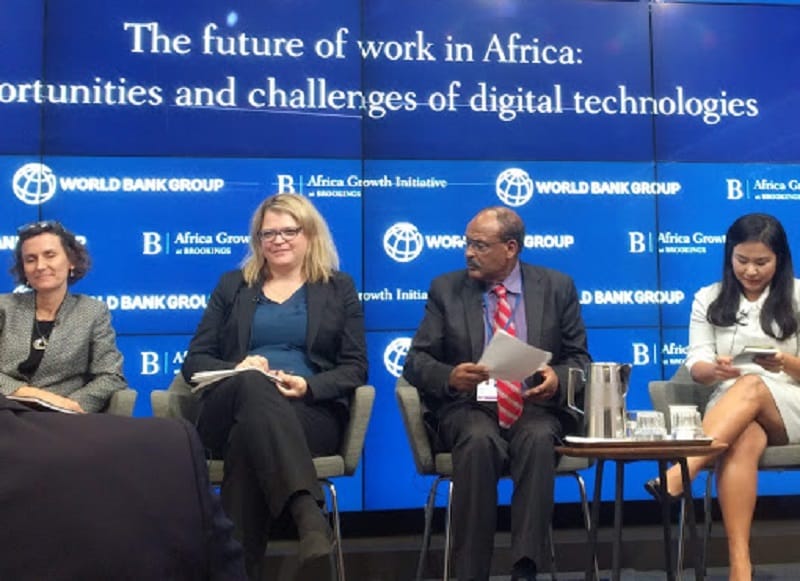Africa’s Informal Sector Marred by Small Manufacturing Base and Low Technology Adoption, Brookings Experts Say
WASHINGTON, October 18, 2019 – Emerging digital technologies are making strides in the global economy, but some experts say that the impact in Africa may take on different forms. Digital technology can increase productivity in Africa’s informal sector, said World Bank Executive Director Jean-Claude

WASHINGTON, October 18, 2019 – Emerging digital technologies are making strides in the global economy, but some experts say that the impact in Africa may take on different forms.
Digital technology can increase productivity in Africa’s informal sector, said World Bank Executive Director Jean-Claude Tchatchouang at a Brookings Institute event Thursday. The informal sector is comprised of jobs in the gig economy, such as rideshares and online platforms.
What’s most important, he said, is that economic growth becomes more inclusive and has a lasting impact on alleviating poverty. Infrastructure, digital payments, online platforms and entrepreneurship are all key areas of improvement for African countries.
Africa’s exceptionally large informal sector is marred by its small manufacturing base and low technology adoption, said Mark Dutz, lead economist at World Bank Africa Region. However, this means lower-skilled workers could less likely be affected by worker-replacing digital technologies.
Moreover, he added, low levels of human capital and high levels of informality provide greater scope for worker-enhancing digital technologies, allowing workers to learn new skills on the job.
Regarding government’s role in this issue, Dutz said, the African Union’s commitment to promote digital technologies provides a window of opportunity to facilitate all types of technological adoption.
Maintaining focus in the non-technological sector is also vital. Africa’s strongest sectors in the manufacturing economy, said World Bank Senior Economic Adviser Mary Hallward-Driemeier, are the ones with the least automation. This is especially relevant towards agriculture.
Part of the lack of automation stems from China’s dominant role in the artificial intelligence industry, she said. Because China is producing so many robots, it’s actively trying to make sure that AI production doesn’t move elsewhere.
The bottom line is that economists and other experts need to focus outside of the traditional narratives of the tech and gig economies, said Tricia Williams, thematic research lead at the MasterCard Foundation. Many African countries are living on an analog system and simultaneously investing resources in digital technologies.
Increasing job opportunities and labor income remains the most sustainable way out of poverty, said Hallward-Driemeier.








